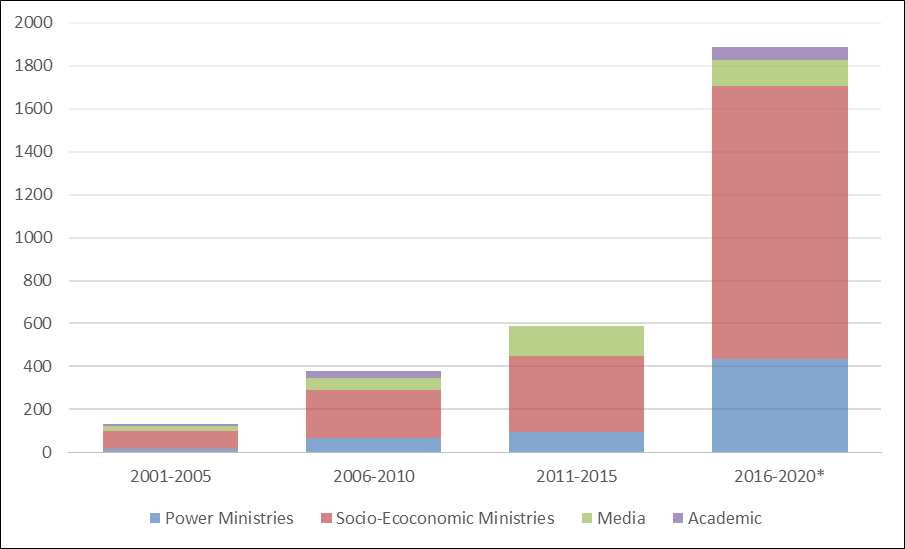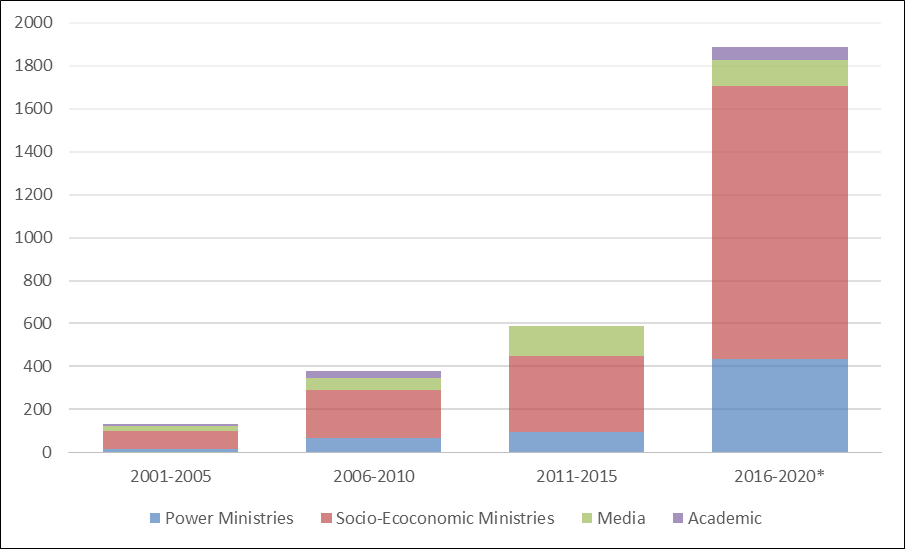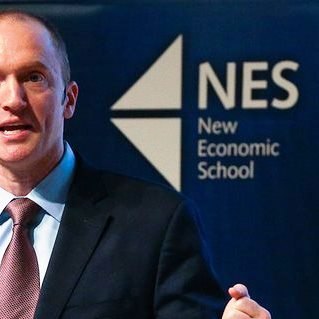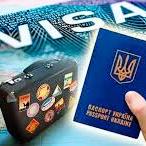(PONARS Eurasia Policy Memo) Discussions of popular support for the Kremlin’s foreign policy often invoke common international relations concepts, like the “rally around the flag” effect, or suggest that the abundance of patriotic coverage in domestic media galvanizes support for Russia’s foreign policy. Yet patriotism is a slippery concept, and it is far from clear that patriotic sentiment translates directly into support for a government’s foreign policy. Despite the Kremlin’s steadily increasing investment in patriotic education over the last fifteen years, Russian citizens’ understanding of patriotism is varied, occasionally contradictory, and often apolitical. Examining Russians’ sense of “everyday patriotism” provides insight into the sources and limits of support for the Kremlin’s foreign policy.
The research for this project involved 65 in-depth, semi-structured interviews conducted with Russian citizens in Tyumen (2014) and Perm (2015), followed by a series of focus groups with state employees, pensioners, and students in Perm. Respondents were asked about their daily routines, about what it means to be a patriot in Russia, their understandings of motherland (rodina), how patriotism differs from nationalism, their thoughts on nostalgia for the Soviet era and the 1990s, and the kinds of duties associated with being a patriot.
Official and Everyday Patriotism
Starting in 2001, the Russian government began investing in patriotic education with the goal of preparing citizens “to fulfill one’s civic duties in times of peace and war.” The program placed particular emphasis on military-patriotic education, focusing on celebrations of military achievements, victories, and acts of heroism. The program further included the promotion of patriotic themes in the mass media and initiated dozens of events to solicit academic, societal, and legal expertise. Amid rising foreign challenges, patriotic education for all citizens now occupies a prominent place in the government’s priorities. Accordingly, the draft program for 2016-2020 proposes a budget increase of more than 300 percent to 1.9 billion rubles (see Figure 1). The primary executors of the state program are the Ministry of Defense, Ministry of Emergency Affairs, Ministry of Culture, Ministry of Education, and Ministry of Press/Rospechat’ (see Table 1).
The 2016 draft program defines patriotism in terms of a collection of social principles and practices:
[Patriotism is] the foundational orientation of citizens’ social behavior, expressing a higher purpose in life and individuals’ activities, showing duty and responsibility before society, forming an understanding of the priority of societal interests above individuals and self-sacrifice, [and] disregarding danger to one’s life and health in the defense of the Fatherland’s interests.
By contrast, most Russians define patriotism simply as “love of the motherland.” Though there is much disagreement over what this means in practice, most see patriotism as apolitical and intensely personal. For instance, the one event unequivocally associated with patriotism—the state-sponsored celebration of Victory Day (May 9)—carries such resonance in large part because the Soviet Union’s massive losses in the Second World War left their mark on virtually every family. Underscoring the primary nature of the familial tie, interview and focus group participants cited the “Immortal Regiment” in Victory Day parades (in which participants carry pictures of relatives who fought in war), as conveying real emotional power for both observers and participants. By contrast, opinions divided over the government’s exploitation of wartime symbols like the orange-black St. George’s ribbons in other contexts.
Respondents defined patriotism in largely local and cultural terms: doing one’s job, looking after one’s neighbors and relatives, not leaving one’s home town (or Russia), preserving Russian language and cultural traditions, or teaching and learning Russian history. In practice, patriotism is distinct from “being a patriot,” which carries a political connotation. If patriotism concerns normative ideals or noble sentiments, being a patriot concerns loyalty and reliability. In other words, patriotism is personal, normative, and abstract, while being a patriot is public politics. Indeed, respondents visibly grew self-conscious and even shaken when asked what it means to be a patriot in Russia today. In virtually every instance, they responded by inquiring whether I sought their personal views or how “everyone else” understood it.
Patriotic Practices and Russian Foreign Policy
In this project, I examined the ways that Russians practice patriotism in their daily lives. Sometimes these practices involve techniques for interpreting or evaluating. For instance, when pressed to explain the meaning of patriotism in Russia today, a common technique is to compare present times with the Soviet era, or to compare Russia with the West. Other times, everyday practices involve actions or activities, like consuming Russian-made products.
Among the various practices associated with patriotism, two sets of practices emerged in relation to Russia’s foreign policy. The first set of practices involved respondents’ evaluation of policy (comparing and nostalgizing). The second set concerned individual action or agency (opposing, defending, and consuming).
Comparing
Regardless of respondents’ political orientations, comparisons with the West serve to demonstrate Russia’s normality: that it commits the same kinds of errors in historical development, nostalgizes about the past in the same way, and strives toward the same kinds of universal goals and values. Some respondents even expressed concern that Russians are not sufficiently patriotic compared to Americans or Ukrainians. In the second round of interviews, however, respondents (particularly pensioners and state employees) began to emphasize cultural differences between a collectivist Russia and an individualist West as normal.
Nostalgizing
Nostalgia in today’s Russia primarily focuses on the late Soviet era prior to 1986 and, more specifically, the experience of Soviet youth expressed in terms of style, fashion, or kitsch. For older generations with experience of Soviet life, nostalgia finds expression through memories of community and collective achievement such as participation in the Pioneers, work brigades, or the 1980 Moscow Olympics. Respondents often considered nostalgizing for the Soviet past to be without political substance, though in focus groups it played a role in evaluations of the state’s social policy.
The situation is somewhat different for Russia’s youth. In interviews and focus groups with university students, nostalgia for Soviet times enables a variety of rose-tinted narratives in which Russians had a functioning state, guaranteed employment, superior education, social capital, safety and respect, and high living standards at low cost. For all generations, nostalgizing also relates to concepts of normality—this time, defining normality in terms of these narratives of the Soviet past. Contrary to the more ambivalent practice of comparing, nostalgizing reinforces notions of Russia as possessing its own path, separate from the West.
Opposing
For those skeptical of the government, being a patriot today means making an enemy of the United States, NATO, and the West, in general. As expressed by one respondent, “The general understanding of patriotism is in terms of transition to a worldview in which enemies are all around. We should be doing something good and noble but they obstruct us.”[1] Opposing need not take military form, and it is construed as defensive rather than aggressive. For most, opposing the West is a proper response to Western sanctions (by supporting import substitution[2]) and to Western intervention in Ukraine (by supporting refugees or the Donbas). It is justified by the misdeeds of Western allies (most recently Turkey), malicious representations of Russia in Western propaganda, and generally by a perceived history of condescension and exploitation in the West’s relations with Russia. Respondents further justify the act of opposing as a patriotic practice in terms of essential (and potentially irreconcilable) cultural differences between collectivist Russia and the individualist West.
It is worth noting that opposing as a practice slips quickly from foreign to domestic enemies. Some of those who support the regime portray opponents as a “fifth column” or “agents of influence.” Yet almost all respondents characterized politics as opposed to patriotism: if patriotism is individual and authentic love for the motherland, politicians try twist and distort that love for their own purposes. For many, belt tightening in the age of sanctions-induced import substitution means that bureaucrats and politicians have no right to go abroad or to possess foreign assets.
Defending
As a patriotic practice, defending is both common and varied. In interviews, defending was associated with a range of objects: motherland, government interests, domestic markets, ecology, historical memory, and so forth. In this sense, defending is more of an abstract principle that depends upon the perception of threat. Of course, some respondents perceived a direct internal threat, extending the notion to defending the motherland from enemy agents. One respondent observed, “I don’t know any foreign agents, but I’m certain they exist. They don’t talk about them [in the media] for nothing.”[3] More typically, respondents associated patriotism with a constitutional obligation to defend the country (indeed, one of the very few times that the Constitution was mentioned in conversations about patriotism), regardless of whether they served in the military.
Consuming
While respondents virtually ignored consuming as a patriotic practice in 2014, it became much more commonly mentioned by the end of 2015. With this practice, one likely sees the influence of a pervasive public discourse concerning sanctions, import substitution, and economic crisis. Respondents talked about buying local or Russian products in general, though many struggled to come up with concrete examples.
The Mechanisms of Patriotic Simplification
Patriotism is complex, but most people intuitively expect it to be simple. In focus groups, discussions repeatedly reached a point at which participants perceived the concept as overly encumbered beyond common sense understandings. At that point, they demanded that their group be more selective in choosing what to call patriotic. In a similar vein, foreign policy is complicated and contradictory, but beyond a certain point, patriotic citizens push back on complex understandings with a variety of cognitive strategies.
Some citizens simplify foreign policy by way of personification: they portray ubiquitous government figures like Putin, Prime Minister Dmitry Medvedev, Defense Minister Sergei Shoigu, and Foreign Minister Sergei Lavrov as loving the motherland and their actions as reducible in terms of that love. State employees were most inclined toward personification, though this often spilled directly into blaming foreign powers (usually the West or the US). In a telling exchange, one focus group participant exclaimed, “The majority of the country supports [Putin]. When we say Krym Nash [Crimea is ours], when we give America what it deserves….It’s inspiring.” The familial connection to patriotism also found expression through opposition to homosexuality as a Western disease threatening family values in Russia.
For others, simplification occurs by way of blame attribution: complexity in foreign policy is an unfortunate consequence of the shortsightedness or misdeeds of other states. As a result, Russia is constrained in its ability to do the right thing in global affairs. In a group discussion, pensioners appeared most strongly inclined to engage in blame attribution, expressing greatest concern about American soft power and its perceived intent to razobshchit’ (divide or break up) Russian society. They also expressed chagrin over the killing of Russian pilots by Turkey and exasperation at the latter’s apparent inability to learn the lessons of history. At the same time, they expressed a desire to be rid of the information war, going so far as to call for the elimination of all political mass media.
Simplification may also occur via externalization, or when an intuitive sense of patriotism and morality is projected onto the state’s role in world affairs. Most often, this involves nostalgia for the Soviet era and comparisons with childhood images of world politics. As one respondent quipped, “As a patriot, I don’t know Russia’s national anthem. But I know the USSR’s anthem that I learned in school.”[4] Students were inclined toward externalization, measuring the current state of affairs in accordance with Soviet domestic and foreign achievements. However, students also tended to link nostalgia for the Soviet past with present day forms of consumption. In focus group discussion, this led to a lively debate about domestic goods and products as symbols of pride, apparently discarding borscht as Ukrainian in favor of pelmeni. Students also singled out humanitarian assistance (to eastern Ukraine and elsewhere) as evidence of today’s Russia reconnecting with its Soviet-era role in international affairs. At the same time, they were far more aware of the state’s constitutional structure and the formal nature of its institutions, and they viewed a politically active citizenry as positive for Russia.
Conclusion: From Patriotic Practices to Policy Accountability
It is worth noting the kinds of patriotism-related practices and points of reference that did not emerge as relevant to foreign policy. Religion and orthodoxy were almost never mentioned. Despite official and media popularization of the Tsarist-era concept of Novorossiya, very few respondents invoked the Tsarist era as relevant to patriotic practice. Also worthy of note is that ethnic nationalism—though common in discussions of patriotism—rarely figured into evaluations of foreign policy or the Kremlin’s policy toward Ukraine. Finally, corruption was not mentioned in the context of foreign policy, though respondents took a dim view of the elite’s perceived tendency to travel abroad and send their children elsewhere to live and study. That these various practices did not arise in interviews and focus groups presents a fascinating contrast with portrayals of Russian foreign policy by Western experts and media, who often equate support for Putin with more or less uniform support for the Kremlin’s policies and policy justifications.
In general, the three mechanisms of patriotic simplification discussed above draw from the evaluative practices of comparing and nostalgizing, but they have different implications for how social groups respond: defending translates readily into personification for state employees, opposing into blame attribution for pensioners, and consuming into externalization for students (see Table 2).
Each mechanism further varies in terms of accountability in foreign policy. The combination of defending and personification essentially gives Russia’s leaders carte blanche; it is perhaps unsurprising that these practices are most characteristic of state employees. Opposing and blame attribution combine into support for foreign policy among pensioners, but with a greater degree of skepticism and distrust of the media. Finally, consuming and externalization entail the application of high normative standards of behavior in world affairs and their connection to domestic economic consumption. That this last combination is most characteristic of today’s students means that Russia’s foreign policy faces perhaps greatest scrutiny by the rising generation. Not surprisingly, the generation most targeted by the state’s Patriotic Education program is also most familiar with the formal structure and operation of state institutions. Yet this generation also expresses its patriotism most often in terms of consumption and, one expects, is likely to be sensitive to the effects of prolonged economic decline on domestic consumption. Hence, what becomes of today’s students after they finish their university degrees ought to be of keen interest to the Kremlin.
Figure 1. Budget for the State Program for Patriotic Education, 2001-2020 (millions of rubles)

Table 1. Spending for State Patriotic Education Program, 2001-2020 (millions of rubles)
|
Recipients
|
2001-2005
|
2006-2010
|
2011-2015
|
2016-2020
|
|
Ministry of Defense
|
9.73
|
27.55
|
43.3
|
204.6
|
|
Ministry of Emergency Situations
|
0.6
|
35.5
|
27.7
|
200
|
|
Ministry of Culture/
Roskul’tura & Rosarkhiv
|
32.45
|
82.2
|
140.35
|
519.1
|
|
Ministry of Education & Rosmolodezh’
|
46.11
|
129.25
|
140.1
|
699.1
|
|
Ministry of Press/Rospechat’
|
23.5
|
17.5
|
138.5
|
123.4
|
|
Patriotic practices
|
Patriotic simplification
|
Constituency
|
Policy accountability
|
|
Defending
|
Personification
|
State employees
|
Least
|
|
Opposing
|
Blame attribution
|
Pensioners
|
Variable
|
|
Consuming
|
Externalization
|
Students
|
Most
|
[1] Respondent 190459.
[2] Almost all respondents assumed that the embargo on European agricultural imports were part of Western sanctions rather than the Kremlin’s response to them.
[3] Respondent 110523.











